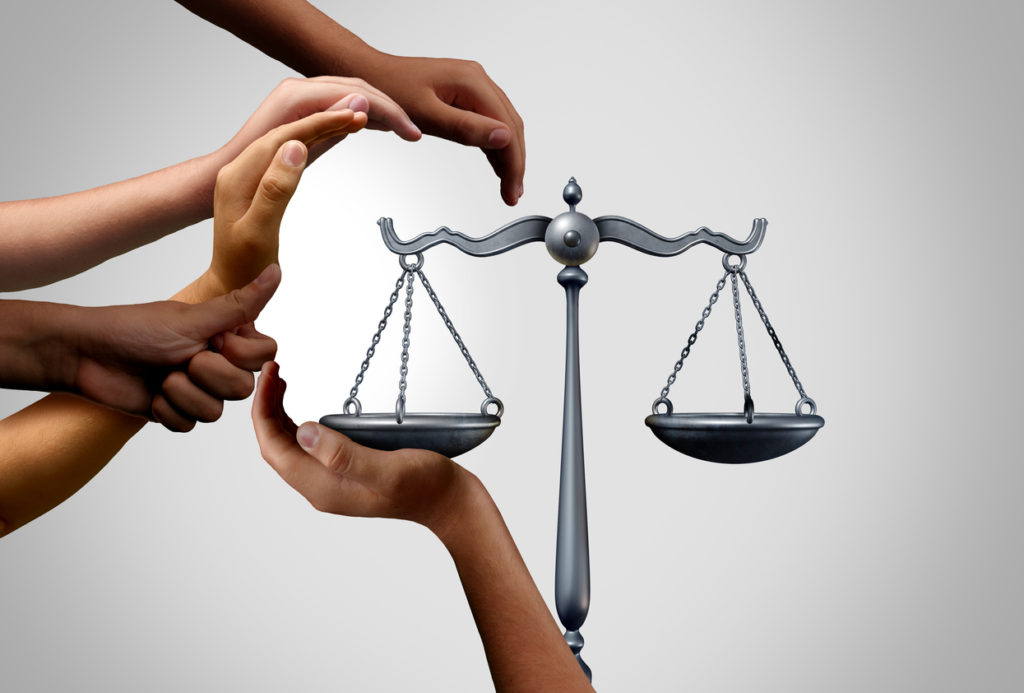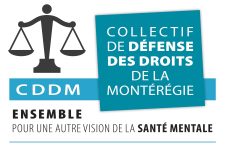Are you in a tough situation and need to know more about your rights?
Have you unsuccessfully tried to obtain services or seek recourse?
Are you or have you been hospitalized or confined without your consent?
Is a court order forcing you to take medication or follow a treatment?
Would you like to file a complaint, but fear reprisals?
The Collectif de défense des droits de la Montérégie can help!
Our services are free and confidential.


Individual assistance and support
The Collectif de défense des droits de la Montérégie (CDDM) aims to empower people who come to us for help and guidance. We provide assistance while encouraging you to develop your own abilities and take back control of your life. We can help you learn to play an active role in improving your own situation. We also offer one-one-one support to people who currently live with or have experienced a mental health problem. Our core mission is to help you defend your rights under the Act respecting health and social services (confinement in an institution, access to records, consent to care, treatment orders, change of physician, right to a lawyer, etc.). We can also walk you through other types of procedures, such as consulting a lawyer, going to court or dealing with government agencies.
Information and referrals
We provide information to people who wish to file a complaint or exercise a right, or who may simply have questions about a particular situation. As needed, we can also direct them to the appropriate resource.
Advocacy
Advocacy is the social practice of promoting and defending the rights vulnerable people, i.e. those who have been subject to discrimination and exploitation.
Advocacy can therefore be seen as a practice through which a third party helps people voice their concerns, assert their rights and obtain what they need. In other words, it refers to both a concept and the accompanying practices that support speaking up for oneself (self-advocacy) and facilitate self-expression.
The impact of advocacy hinges on its consideration of “the social existence of people and their full citizenship” (Dutoit and Deutsch, 2006a: 98) in view of empowering the individual to act on their own behalf.
However, advocacy’s primary goal remains transforming the situation and bringing about positive change, in keeping with the aspirations of the person being represented.
It thus becomes a matter of creating a space and launching strategies for acting together legally to bring about the desired change (Dutoit and Deutsch, 2006b). This can be accomplished on the individual level, for example, in defending someone’s rights, developing their skills or forging a bond of trust. It can also occur in the collective sphere, including promoting advocacy practices, fighting discrimination, and even changing institutional practices (Rapaport et al., 2006).
Beyond advocacy’s underlying philosophy and various objectives, there is a general consensus about a unique component of the field: the relationship between the advocate and the person being assisted.
Calling on a human rights group is often a last resort of people in distress, who at this point are largely disillusioned and feeling cheated by a system, corporation, or organization. For the advocate, building a relationship of trust is therefore not only a challenge, but also and above all crucial to optimizing the intent and impact of advocacy.
Listening and offering validation and support are also essential.
We may distinguish between two (non-exclusive) types of intervention: practices whose purpose is instrumental, i.e. responding to the practical framework; and those whose purpose can be termed “expressive,” i.e. that take into account the person’s background and the situation’s emotional aspects (Brandon and Brandon, undated).
